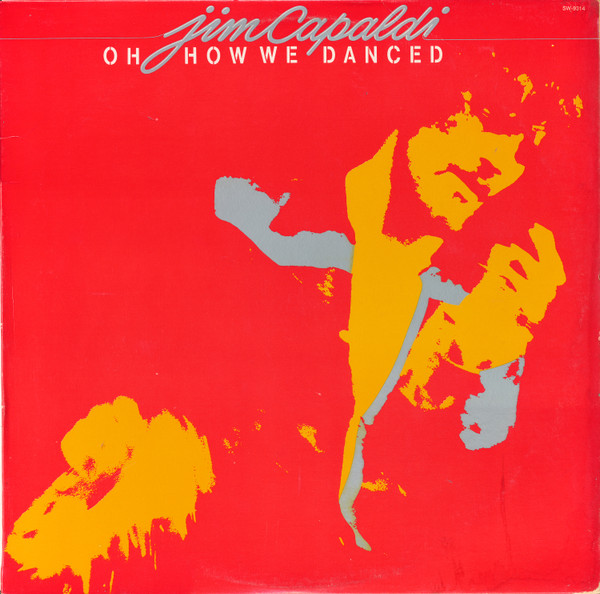His first solo album apparently came about due to a Traffic stop (sorry, not sorry) due to Steve’s health issues, but Oh How We Danced is key to the larger story because much of it was recorded in Muscle Shoals, with lots of input from that band’s rhythm section, plus plenty of contributions from the rest of Traffic and consistent but not overly showy guitar work from Free’s Paul Kossoff. Musically it’s not very adventurous, but it is entertaining, and that’s the point.
“Eve” (pronounced “ee-vee”) is a sweet and simple love song that builds nicely from the quiet beginning, encompassing a guitar solo and before you know it there’s a horn section. “Big Thirst” has a co-write credit for Dave Mason, and foreshadows some of the moodier Traffic pieces to come. Along with moody strings, there’s a nice counterpoint with Sunny Leslie harmonizing on the choruses. While intended to boogie, “Love Is All You Can Try” deserves a better backing than what it gets, particularly with the track-length guitar solo fighting for space in the mix with Barry Beckett’s piano. “Last Day Of Dawn” is proto-disco, but redeems itself with the self-harmony on the choruses, and boy, is it catchy.
“Don’t Be A Hero” stays down and somber until Dave Mason’s guitar solo breaks in some harsh light, something of an extension of “Big Thirst”. The overly cheery “Open Your Heart” is a Traffic track wisely left over from Low Spark, but it fits well here, and Steve’s harmony is welcome. “How Much Can A Man Really Take?” features a much different band, including former members of Spooky Tooth and The Move, but Chris Wood and Reebop help keep it of a piece with the rest of the album, with Kossoff finally let loose. Finally, “Anniversary Song” is the Al Jolson number that gives the album its title, done here in the Muscle Shoals style, with another blast from Kossoff.
Oh How We Danced provides a nice bridge between Traffic albums, and not just because the rhythm section would soon become part of the fold. Best of all showcases Capaldi’s voice, all too overshadowed in his main gig. (The European reissue CD, in addition to using the cover art that was standard worldwide, includes the B-side “Going Down Slow All The Way” as a bonus track. It’s a simple recording, not much more than a piano and vocal demo with a bass drum and tambourine, but it’s effective.)
Jim Capaldi Oh How We Danced (1972)—3

No comments:
Post a Comment